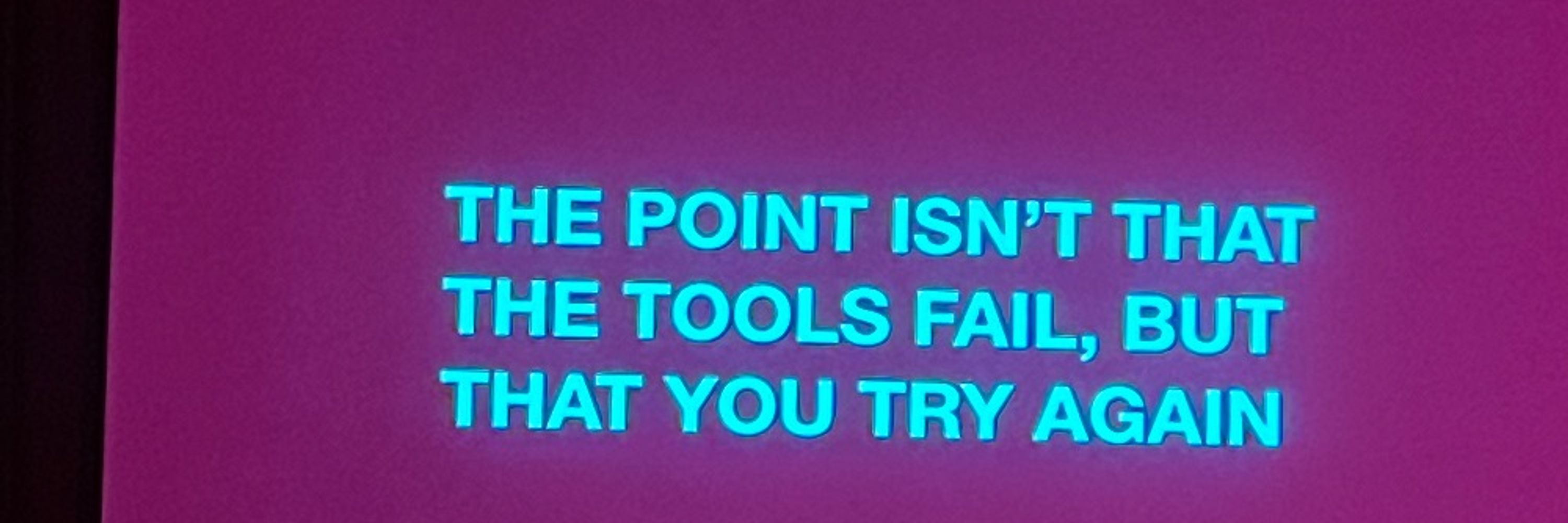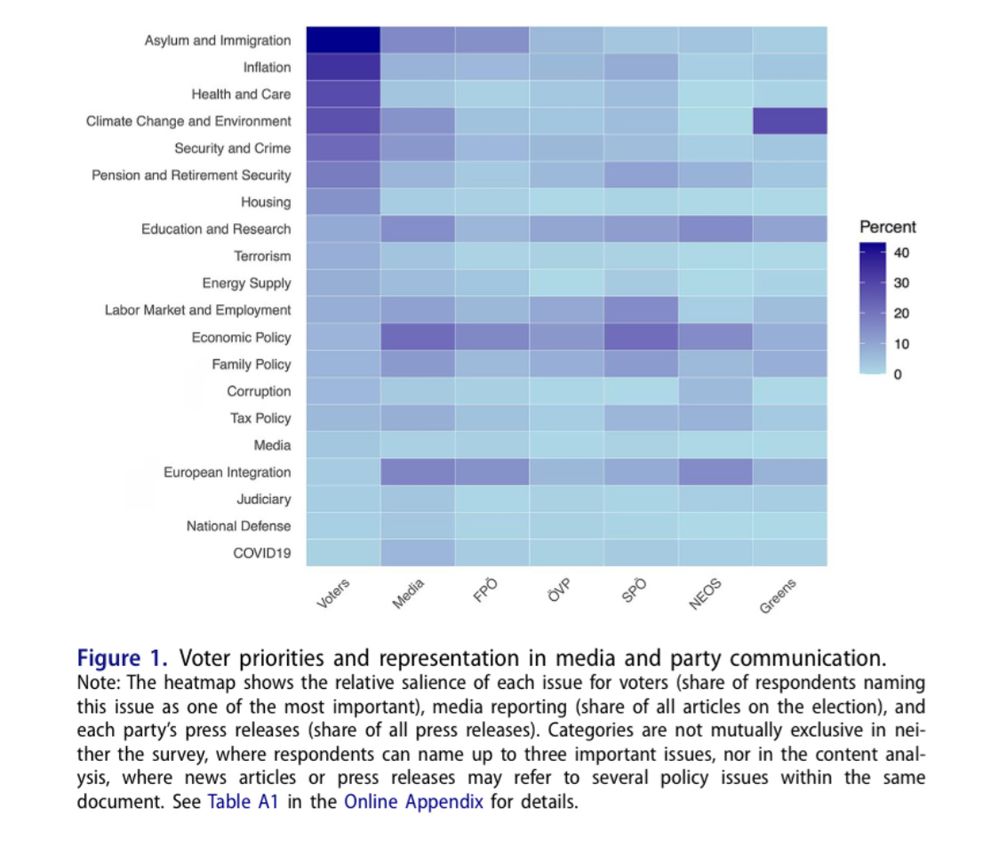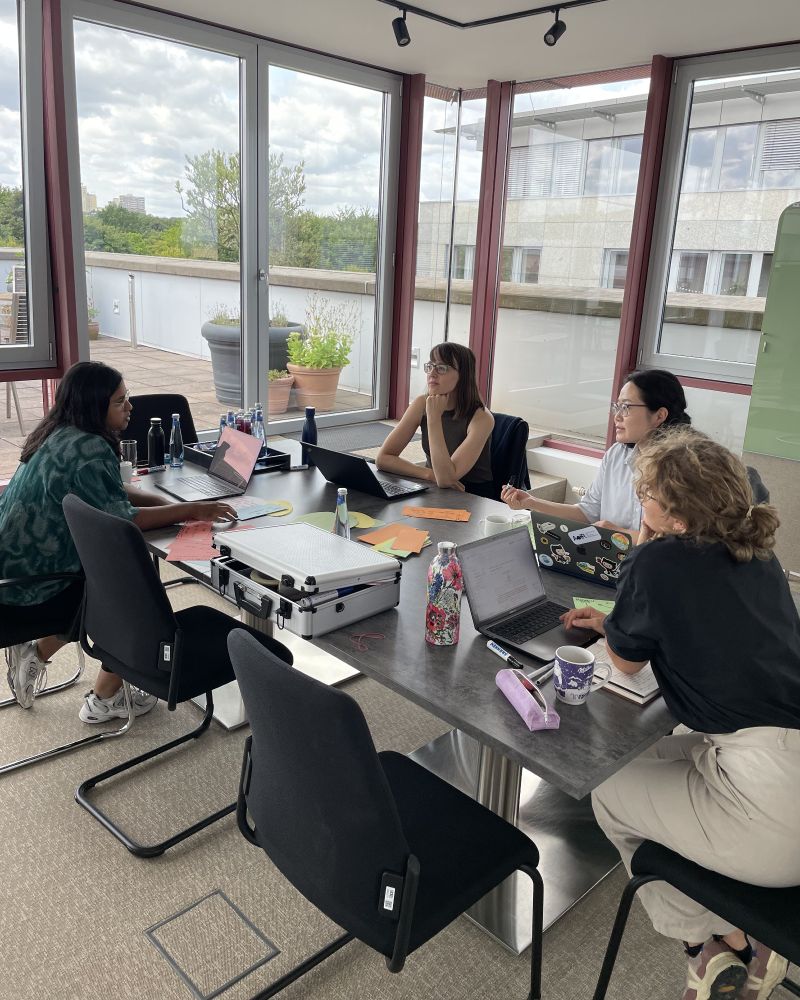Jana Bernhard-Harrer
@janabernhard.bsky.social
430 followers
280 following
74 posts
She/her | Post-doc at @compcommlab.bsky.social and @medem.bsky.social | Validation of CTAM & Austrian Political Communication.
https://sites.google.com/view/janabernhard-harrer/home
Posts
Media
Videos
Starter Packs
Reposted by Jana Bernhard-Harrer
Reposted by Jana Bernhard-Harrer
Reposted by Jana Bernhard-Harrer
Reposted by Jana Bernhard-Harrer
Reposted by Jana Bernhard-Harrer
Reposted by Jana Bernhard-Harrer
Reposted by Jana Bernhard-Harrer
Reposted by Jana Bernhard-Harrer
Marvin Stecker
@marvins.bsky.social
· Aug 13
Christina Gahn
@christinagahn.bsky.social
· Aug 13

From crisis governance to electoral normality and the longest coalition negotiations: the 2024 Austrian parliamentary election
The 2024 Austrian parliament election reflects both continuity and transformation within the political landscape of the country. Following a turbulent inter-election period marked by multiple crise...
doi.org
Reposted by Jana Bernhard-Harrer
Christina Gahn
@christinagahn.bsky.social
· Aug 13

From crisis governance to electoral normality and the longest coalition negotiations: the 2024 Austrian parliamentary election
The 2024 Austrian parliament election reflects both continuity and transformation within the political landscape of the country. Following a turbulent inter-election period marked by multiple crise...
doi.org
Reposted by Jana Bernhard-Harrer
Reposted by Jana Bernhard-Harrer
Reposted by Jana Bernhard-Harrer
Reposted by Jana Bernhard-Harrer
Christina Gahn
@christinagahn.bsky.social
· Aug 13
Reposted by Jana Bernhard-Harrer
Reposted by Jana Bernhard-Harrer
Christina Gahn
@christinagahn.bsky.social
· Aug 13

From crisis governance to electoral normality and the longest coalition negotiations: the 2024 Austrian parliamentary election
The 2024 Austrian parliament election reflects both continuity and transformation within the political landscape of the country. Following a turbulent inter-election period marked by multiple crise...
doi.org
Reposted by Jana Bernhard-Harrer
Reposted by Jana Bernhard-Harrer
Reposted by Jana Bernhard-Harrer
Axel Bruns
@snurb.info
· Aug 7
Reposted by Jana Bernhard-Harrer











